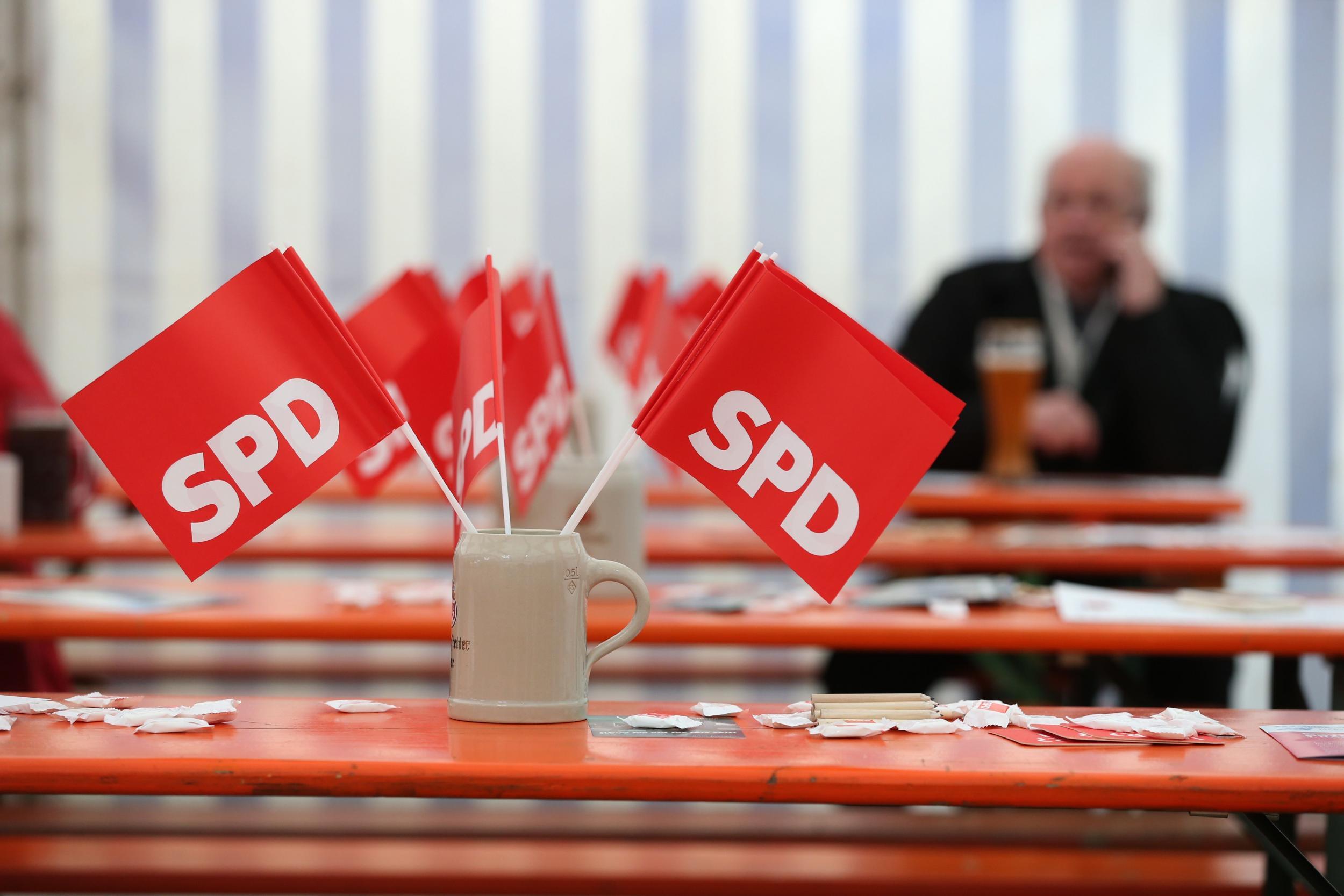German SPD Faces Youth Backlash During Coalition Formation

Table of Contents
Policy Disconnects Fueling Youth Dissatisfaction
The SPD's struggle to connect with young voters stems largely from perceived failures to address key policy areas. This disconnect fuels the German SPD youth backlash and threatens the party's long-term viability.
Climate Change Inaction
A major source of frustration among young Germans is the SPD's perceived lack of ambition on climate change. The feeling is that the party's actions don't match the urgency of the climate crisis.
- Insufficient investment in renewable energy: Funding for renewable energy projects remains insufficient compared to the scale of the challenge.
- Slow progress on phasing out fossil fuels: The transition away from coal and other fossil fuels is progressing too slowly to meet climate targets.
- Weak commitments to climate targets: The SPD's commitments to ambitious climate targets lack the concrete action plan needed to achieve them.
For instance, the continued reliance on lignite coal power plants, despite pledges to phase them out, has sparked outrage among young, environmentally conscious voters. Recent polls show a significant drop in youth support for the SPD, directly correlated to dissatisfaction with its climate policies.
Affordable Housing Crisis
The escalating cost of housing in German cities is another critical factor contributing to the German SPD youth backlash. Young people struggle to find affordable housing, leaving many feeling ignored by the party.
- Lack of affordable housing options: The supply of affordable housing is drastically insufficient to meet the demand, especially in urban areas.
- Rising rents: Rent prices continue to climb, making it increasingly difficult for young people to find suitable accommodation.
- Insufficient government support for young homebuyers: Government programs designed to support young homebuyers often fall short, failing to make a significant impact.
Statistics paint a stark picture: rent prices in major German cities like Munich and Frankfurt have risen by over 50% in the last decade, leaving many young people struggling to afford even basic housing. The SPD’s current initiatives haven't adequately addressed this crisis.
Education and Employment Concerns
Concerns about access to quality education and the challenges of entering the German job market further fuel the German SPD youth backlash.
- High tuition fees in some states: The continued existence of tuition fees in several German states creates a financial barrier for many young people.
- Lack of apprenticeships: The number of available apprenticeships often fails to keep pace with the number of young people seeking them.
- High youth unemployment rates: Persistent high youth unemployment rates leave many feeling anxious about their future prospects.
Data comparing German youth unemployment rates to other European countries reveals a concerning trend. Furthermore, the lack of affordable and accessible higher education options further disadvantages young people from lower socio-economic backgrounds, widening the existing inequalities.
Communication Breakdown and Lack of Representation
Beyond policy issues, a communication breakdown and lack of representation are key components of the German SPD youth backlash.
Failure to Engage Young Voters
The SPD is criticized for its ineffective communication strategies targeting young people. This perceived lack of engagement contributes to their declining popularity.
- Lack of youth-oriented communication strategies: The party's efforts to engage young voters via social media and other channels have often felt tone-deaf or lacking in substance.
- Insufficient representation of young voices within the party: A lack of young leaders in prominent positions within the SPD reinforces the feeling of being excluded and unheard.
The SPD's social media presence often fails to resonate with the concerns and communication styles of younger generations. The lack of visible, relatable young leaders within the party's ranks exacerbates this problem.
Perceived Elitism and Disconnect from Reality
Many young voters perceive the SPD as being out of touch with their everyday realities and struggles.
- Lack of accessible political processes: The political processes often feel inaccessible and unresponsive to the needs of young people.
- Perceived lack of understanding of youth challenges: The party is seen as failing to grasp the unique challenges faced by young people in today’s Germany.
Anecdotal evidence from young voters abounds, with many expressing feelings of frustration and disenfranchisement due to a perceived lack of understanding from the SPD leadership.
The Rise of Alternative Parties Among Young Voters
The growing popularity of the Green Party and the Left Party amongst young voters directly reflects the German SPD youth backlash.
Greens and Left Party Gaining Ground
These parties offer policies and a vision that better resonate with young people's concerns.
- Stronger climate policies: The Greens offer more ambitious and concrete climate action plans.
- More progressive social policies: Both the Greens and the Left Party advocate for more progressive social policies on issues like affordable housing and education.
- Better representation of youth concerns: These parties often feature younger leaders and demonstrate a greater willingness to listen to and amplify youth voices.
Polling data clearly shows a shift in youth voting preferences towards these parties, highlighting the SPD's urgent need for change. The policy differences between these parties and the SPD directly address the concerns fueling the youth backlash.
Conclusion
The German SPD's difficulties during coalition formation are inextricably linked to the growing German SPD youth backlash. This stems from substantial policy disagreements, a communication failure, and a lack of representation within the party. The increasing appeal of alternative parties to young voters underscores the critical need for the SPD to act decisively. To rebuild its relationship with younger generations, the SPD must improve its communication, prioritize youth-focused policies, and foster greater inclusivity within the party. Failure to effectively address this German SPD youth backlash will severely jeopardize its future electoral prospects and impact the political landscape of Germany significantly.

Featured Posts
-
 Leaving Coronation Street An Actors Heartbreaking Farewell
Apr 30, 2025
Leaving Coronation Street An Actors Heartbreaking Farewell
Apr 30, 2025 -
 Matas Buzelis Tyla Po Savo Vardo Turnyro Vilniuje
Apr 30, 2025
Matas Buzelis Tyla Po Savo Vardo Turnyro Vilniuje
Apr 30, 2025 -
 Trumps Low Approval Rating At 39 Factors And Analysis Of The First 100 Days
Apr 30, 2025
Trumps Low Approval Rating At 39 Factors And Analysis Of The First 100 Days
Apr 30, 2025 -
 Ftc Probe Into Open Ai Examining The Regulatory Landscape Of Ai
Apr 30, 2025
Ftc Probe Into Open Ai Examining The Regulatory Landscape Of Ai
Apr 30, 2025 -
 Giai Bong Da Thanh Nien Thanh Pho Hue Lan Thu Vii Doi Hinh Manh Nhat Tranh Tai
Apr 30, 2025
Giai Bong Da Thanh Nien Thanh Pho Hue Lan Thu Vii Doi Hinh Manh Nhat Tranh Tai
Apr 30, 2025
